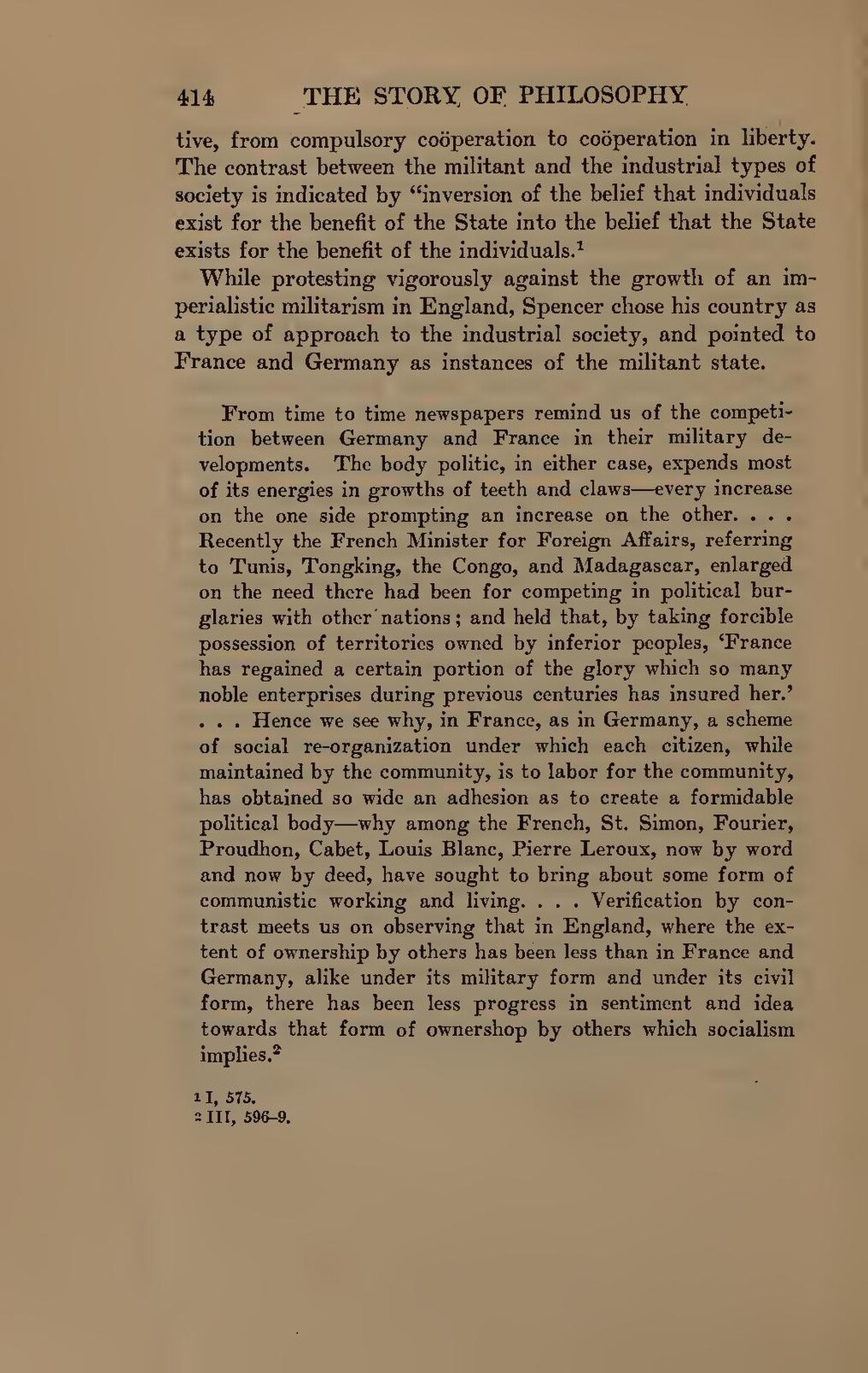tive, from compulsory coöperation to cooperation in liberty. The contrast between the militant and the industrial types of society is indicated by "inversion of the belief that individuals exist for the benefit of the State into the belief that the State exists for the benefit of the individuals.[1]
While protesting vigorously against the growth of an imperialistic militarism in England, Spencer chose his country as a type of approach to the industrial society, and pointed to France and Germany as instances of the militant state.
From time to time newspapers remind us of the competition between Germany and France in their military developments. The body politic, in either case, expends most of its energies in growths of teeth and claws—every increase on the one side prompting an increase on the other.…Recently the French Minister for Foreign Affairs, referring to Tunis, Tongking, the Congo, and Madagascar, enlarged on the need there had been for competing in political burglaries with other nations; and held that, by taking forcible possession of territories owned by inferior peoples, 'France has regained a certain portion of the glory which so many noble enterprises during previous centuries has insured her.'…Hence we see why, in France, as in Germany, a scheme of social re-organization under which each citizen, while maintained by the community, is to labor for the community, has obtained so wide an adhesion as to create a formidable political body—why among the French, St. Simon, Fourier, Proudhon, Cabet, Louis Blanc, Pierre Leroux, now by word and now by deed, have sought to bring about some form of communistic working and living.…Verification by contrast meets us on observing that in England, where the extent of ownership by others has been less than in France and Germany, alike under its military form and under its civil form, there has been less progress in sentiment and idea towards that form of ownershop by others which socialism implies.[2]
